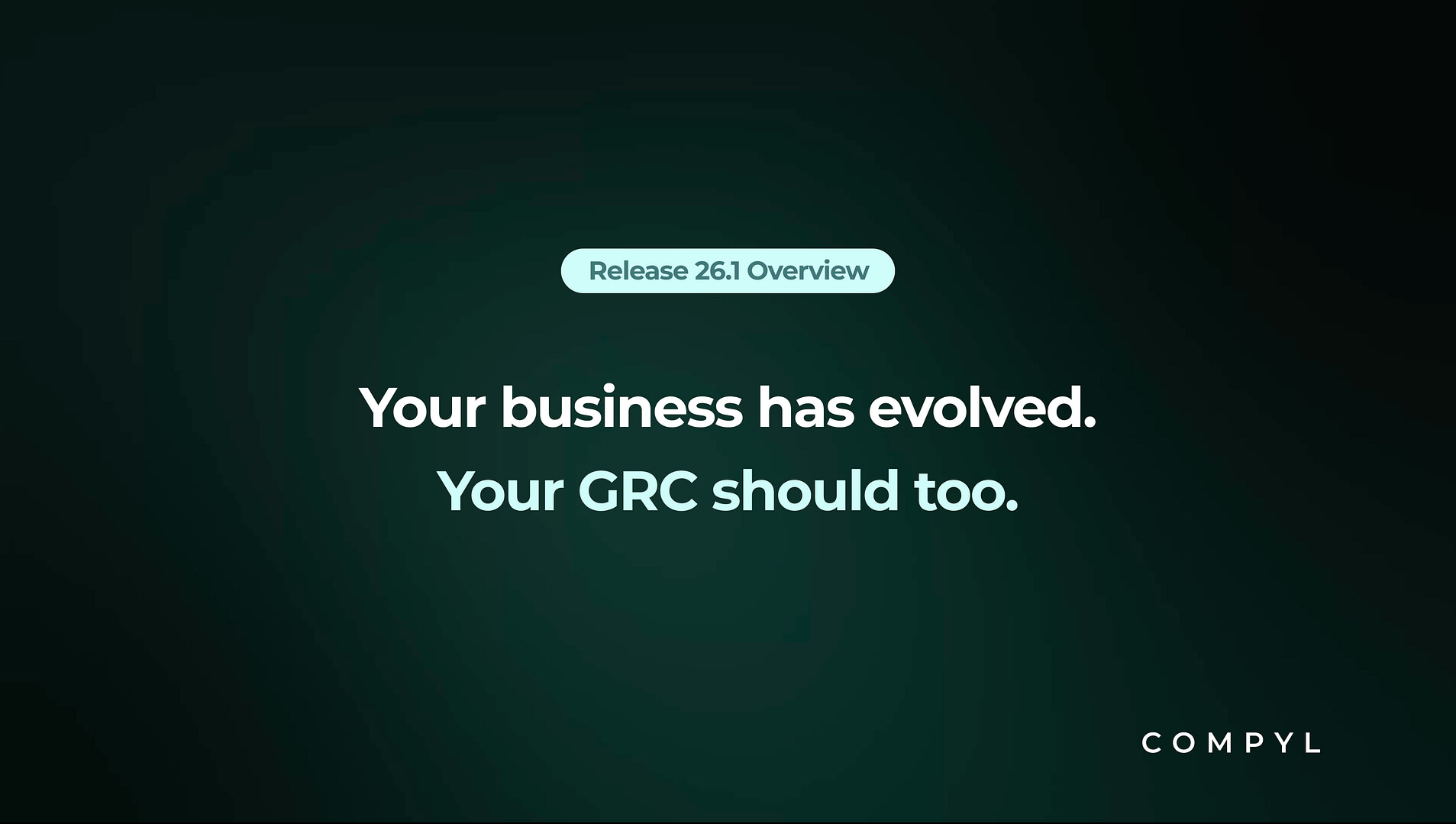Contract compliance is the practice of consistently enforcing contract terms, internal policies, and regulatory requirements to reduce risk.
Key Takeaways
- Compliance starts at the drafting stage and continues through execution, audits, and renewals.
- Contract policy compliance ensures that both internal teams and external vendors follow the specific performance standards and governance controls in every agreement.
- Contract management platforms help centralize data and track KPIs, allowing businesses to reduce risk even as contract volumes grow.

Enterprises create hundreds or thousands of contracts every year, including procurement, sales, and service agreements. In the SaaS and IaaS markets alone, the annual value of contracts exceeds $14 billion, proving that with so much money on the line, following through on every deal is a vital investment. To protect your bottom line, you must first understand what contract compliance is and how it helps businesses of every size stay organized and profitable.
What Is Contract Compliance and What Does It Involve?
In broad terms, contract compliance is the process of ensuring your organization follows through on the terms of its business agreements. It also means confirming that internal teams, vendors, and third parties consistently follow approved contract policies, performance standards, and governance requirements.
This approach is often referred to as contract policy compliance, which focuses on aligning everyday business activities—such as procurement, billing, reporting, and service delivery—with the terms and controls defined in the contract.
In practical terms, contract compliance shows up in everyday situations. For example, a supplier agreement may include service-level agreements (SLAs) that require monthly performance reports or on-time delivery targets. If reports are submitted late, deliveries miss agreed-upon timelines, or pricing terms aren’t followed exactly, your organization may still be operating, but it’s technically out of compliance. Over time, these small gaps can lead to disputes, penalties, or strained vendor relationships.
Managing Compliance Throughout the Contract Lifecycle
Many organizations also view contract compliance as part of the overall contract lifecycle, meaning compliance is not a one-time check but an ongoing responsibility. From contract drafting and negotiation to execution, renewal, and closeout, each phase introduces compliance risks that must be monitored and managed over time.
Compliance is technically one stage of the contract management process. However, virtually every part of a contract’s creation and execution has some relationship to compliance. For example, compliance considerations can influence:
- How contracts are written
- How obligations are assigned to internal stakeholders
- How vendors are onboarded
- How performance data is tracked
A missed reporting deadline, use of an outdated contract version, or failure to follow internal approval policies may all represent compliance gaps, even if the core business relationship remains intact.
Fulfilling Contract Terms and Obligations
Part of compliance means fulfilling contract stipulations, such as:
- Product delivery volumes
- Product characteristics and quality considerations
- Scope and type of services rendered
- Project stages and completion dates
- Organizational responsibilities
Your organization also needs to verify that other parties carry out their obligations, such as suppliers and vendors, through regular audits, performance reviews, and compliance checks. This mutual accountability is a key element of contract policy compliance, ensuring that expectations are clearly enforced on both sides of the agreement and documented throughout the contract’s lifecycle.
Meeting State, Federal, and International Laws
The other side of contract compliance requires your organization to meet legal and regulatory requirements around contract creation. In the United States, businesses must navigate the Uniform Commercial Code, state contract laws, and consumer protection laws when creating contracts.
Employment agreements must comply with over 100 federal laws, such as the Fair Labor Standards Act, Employee Retirement Income Security Act, and the Worker Adjustment and Retraining Notification Act. Failure to align contracts with these legal requirements can create compliance risks that persist throughout the contract’s operational lifecycle, even if day-to-day performance appears satisfactory.
Why Is Contract Compliance Important for Your Business?

Whether you lead a Global 2000 enterprise or own a small business, contract compliance has a significant impact on your organization’s reputation, customer relationships, profitability, and continued operations. At the very least, breaking contract terms undermines trust and usually leads to lost clients. If this happens too often, it can trigger a domino effect where other customers, leads, and industry contacts refuse to work with you.
Noncompliance can have even greater legal consequences. Depending on the type of agreement, your business may be liable for hefty state and federal fines, penalties for contract breaches, or devastating lawsuits.
How Do You Measure Contract Policy Compliance?
To measure contract compliance, your business must look at performance metrics for the main terms of the agreement. The key performance indicators you track depend on the contract’s deliverables (i.e., services or products). These KPIs usually require quantitative measurements, but they can also be based on successfully passing audit checks.
Quality Compliance
Quality metrics often focus on successfully meeting the client’s quality standards and agreed-upon product specifications, such as dimensional tolerances. Contracts usually follow recognized international standards for manufacturing quality, especially ISO 9001. Some organizations set specific performance targets based on statistical process control, total quality management, or defect rate.
Delivery Times and Punctuality
In many industries, on-time order fulfillment is critical for smooth operations and profitability. For example, if a raw materials supplier or logistics provider fails to deliver the necessary goods on time, manufacturers may have to halt production, resulting in millions of dollars in downtime losses.
Nearly every B2B company, from general contractors to IT teams, has contractual deadlines to meet. Contract compliance for punctuality focuses on achieving targets for individual stages, delivery schedules, and completed projects.
Financial Targets
Contracts that involve consulting or professional services often include both soft and hard financial targets. Hard targets are the minimum performance thresholds that must be met for the contract to be considered fulfilled. Failing to meet these requirements may result in reduced payment, penalties, or contract termination.
Soft targets, on the other hand, are performance goals that go beyond baseline expectations. Meeting or exceeding them can lead to incentives such as performance bonuses, expanded scopes of work, or higher payout rates. Common financial and performance targets in these contracts include return on investment, operational efficiency gains, cost reductions, leads generated, and sales growth.
Responsiveness Compliance
Last but not least, responsiveness is a factor in many modern contracts. Responsiveness refers to maintaining communication at regular intervals per the terms of the contract.
Some projects require regular reports, quality inspections, audits, or stage-completion walkthroughs. There may be contractual stipulations for periodic video chats, emails, client meetings, or in-person communications. Compliance metrics look at whether your company meets these reporting obligations and how often.
What Is Contract Compliance Software?

The complexity of contract agreements means that legal professionals (often in-house counsel) must be involved throughout the contract management process. Because legal time and resources are limited, organizations benefit from streamlining how contracts are created, monitored, and enforced.
Contract policy compliance platforms help legal teams and business stakeholders implement automated workflows for report generation, KPI tracking, and compliance monitoring tied to contract deliverables. Many SaaS solutions also simplify contract creation by standardizing templates and approval processes.
How Do You Ensure Contract Compliance?
The steps required to comply with contracts also benefit your overall organization. For example, meeting regulatory and quality standards can help your organization stand out as an industry leader, winning valuable clients and potentially qualifying for lucrative government contracts. Contract compliance generally means following Good Manufacturing Practice and other industry best practices.
Regulatory Update Tracking
Governmental and industry regulations frequently change, from CMMC cybersecurity guidelines for the DoD supply chain to PCI DSS requirements for SaaS vendors. Fulfilling the terms of contracts may include adapting to these changes. Platforms like Compyl stay up to date with framework version updates so that your compliance tracking is accurate.
Centralized Contract Version Control
Contract terms can also change, both upon renewal and when both parties agree to it. Some compliance mistakes happen because certain employees or departments are using an outdated version of the contract. In a 2021 EY Law survey, 9 out of 10 professionals had problems even locating the correct contract. Compyl helps you avoid this issue by centralizing contract and document storage. That way, all teams can follow the latest version seamlessly.
Standardized Contract Creation
One reason why contracts lose almost 10% of their value is that only 30% of legal teams use preapproved templates or contracting playbooks. Standardizing contracts and making smaller case-by-case adjustments is an excellent way to lower the costs of contract management and increase your compliance rates.
Contract Policy Compliance Audits
Regular audits are a must for consistent contract policy compliance. Put simply, it’s better to catch minor deviations while they’re small instead of waiting for them to turn into major breaches of contract. Audits help you locate problems with compliance and create solutions that are efficient and practical.
Contract Compliance Doesn’t Have To Be Complicated

Contract compliance is far more manageable when it’s built into your everyday workflows instead of treated as a reactive task. With the right technology, your teams can track obligations, monitor performance, manage regulatory updates, and maintain accurate contract records—all from a single, centralized system.
Compyl helps organizations move beyond spreadsheets and manual reviews by connecting contracts directly to compliance frameworks, controls, and evidence, so nothing slips through the cracks. If you’re looking for a scalable contract management solution that supports audits, reduces risk, and keeps your contracts aligned with evolving regulations, Compyl can help. Request a demo to see how Compyl simplifies contract compliance across the entire contract lifecycle.



